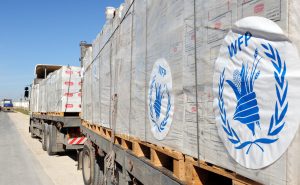The World Food Programme (WFP), the food assistance arm of the United Nations, is testing blockchain technology.
In a blog post from earlier this month, the WFP detailed a project centered on a village in Pakistan. The test, which involved recording cash transactions on the ethereum blockchain, was conducted in conjunction with the WFP’s Innovation Accelerator, an effort partially backed by the German government.
The group explained:
“As vulnerable families received WFP food and cash assistance, the transactions were authenticated and recorded on a public blockchain through a smartphone interface. Transaction reports generated were then used to match the disbursements with entitlements.”
According to the WFP, the pilot was a successful one, setting the stage for what is expected to be a “full-scale pilot”.
“Blockchain can revolutionize the way WFP delivers assistance to vulnerable families across the globe. It can bring us closer to the people we serve and allow us to respond much faster,” Farman Ali, a regional official for the WFP, said.
The WFP’s initiative is far from the first for the UN when it comes to blockchain.
CoinDesk reported last November that the United Nations Children’s Fund (UNICEF) had invested in its first blockchain startup, a move that came months after the organization said it wanted to fund projects involving the tech.
Then in October, the UN’s global development network, the Development Programme, detailed how it was using blockchain to experiment with new forms of delivering aid, fostering remittances and testing connected device networks.
UN delegations have also discussed how the tech can help the organization pursue its sustainability goals.
Image Credit: ChameleonsEye / Shutterstock.com














